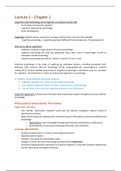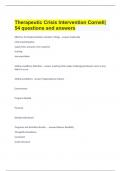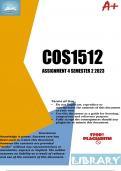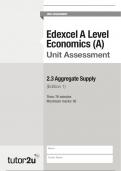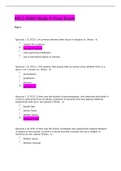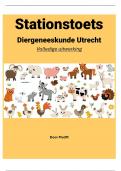Summary
Summary of All Lectures & Chapters - VU Evolutionary Psycholgy 2024/2025
- Course
- Institution
- Book
Summary containing all lectures and chapters of the book. Very extensive but contains everything and is 62 pages full of information that can be asked during the exam.
[Show more]





